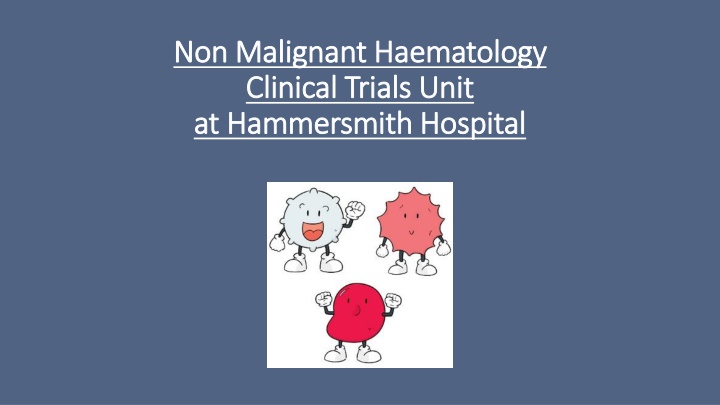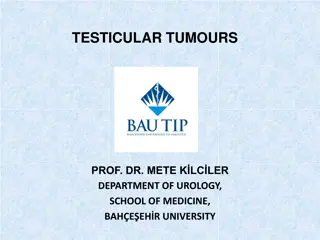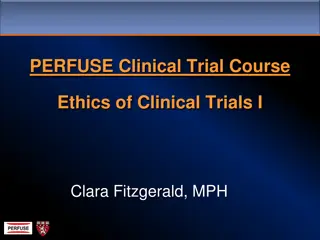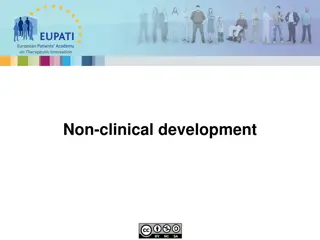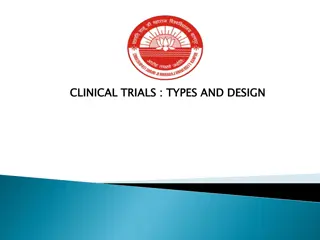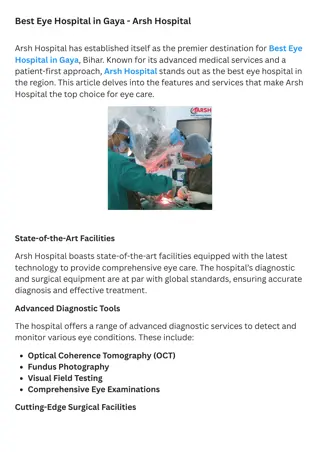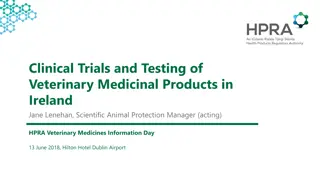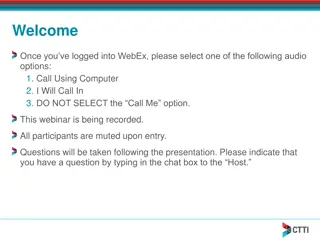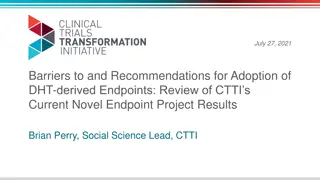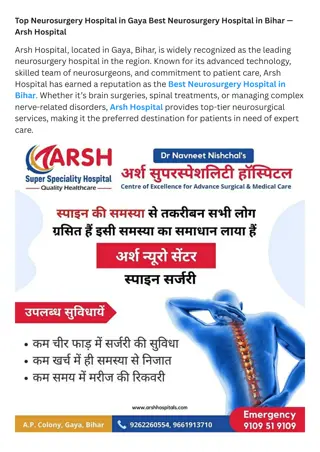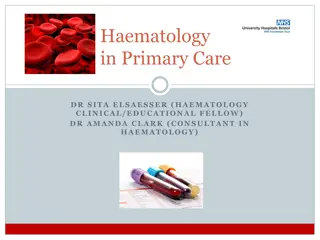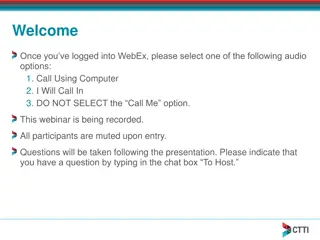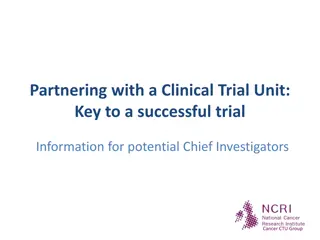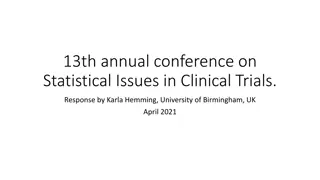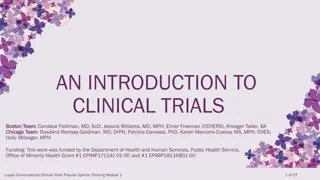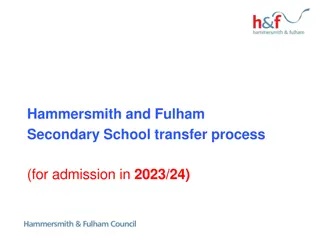Non-Malignant Haematology Clinical Trials at Hammersmith Hospital: Latest Research Updates
Explore the latest updates from the Non-Malignant Haematology Clinical Trials Unit at Hammersmith Hospital, including studies on Red Cell Disorders and the REDRESS trial for severe sickle cell disease. Learn about ongoing trials, inclusion criteria, and contact information for participation.
Download Presentation

Please find below an Image/Link to download the presentation.
The content on the website is provided AS IS for your information and personal use only. It may not be sold, licensed, or shared on other websites without obtaining consent from the author.If you encounter any issues during the download, it is possible that the publisher has removed the file from their server.
You are allowed to download the files provided on this website for personal or commercial use, subject to the condition that they are used lawfully. All files are the property of their respective owners.
The content on the website is provided AS IS for your information and personal use only. It may not be sold, licensed, or shared on other websites without obtaining consent from the author.
E N D
Presentation Transcript
Non Malignant Haematology Non Malignant Haematology Clinical Trials Unit Clinical Trials Unit at Hammersmith Hospital at Hammersmith Hospital
Red Cell Studies Red Cell Studies Sickle Cell Disease Thalassemia Pyruvate Kinase Deficiency Open for recruitment Study on pause Recruitment closed study in follow up Priority study!
REDRESS: A multi-centre open randomised controlled trial to assess the effect of related haplo-donor haematopoietic stem cell transplantation versus standard of care (no transplant) on treatment failure at 24 month in adults with severe sickle cell disease. Main Inclusion Criteria: Above 18 years old. Confirmed Haploidentical donor. Severe SCD phenotype who are at high risk for morbidity and mortality. Severe SCD is defined by at least one of the following: o Clinically significant neurologic event (stroke) or deficit lasting > 24 hours. o History of 2 acute chest syndromes in a 2-year period preceding enrolment despite optimum treatment, e.g. with HU o History of 3 severe pain crises per year in a 2-year period preceding enrolment despite the institution of supportive care measures (e.g. optimum treatment with HC). o Administration of regular transfusion therapy (=8 packed red blood transfusions per year for 1 year to prevent VOCs). o Patients assessed as requiring transfusion but with red cell allo-antibodies/very rare blood type, rendering it difficult to continue/commence chronic transfusion. o Patients requiring HC/transfusion for treatment of SCD complications who cannot tolerate either therapy due to significant adverse reactions. o Established end organ damage relating to SCD, including but not limited to progressive sickle vasculopathy and hepatopathy. Primary exclusion criteria: Fully matched sibling donor. Principal Investigator: Dr Steven Okoli Study Coordinator: Tung Le Tung.le@nhs.net Recruitment target: 2 Recruitment Closure Date: TBC Previous bone marrow transplant. Clinically significant donor specific HLA antibodies. Active blood borne viruses. Uncontrolled bacterial, fungal or viral infection. Pre-existing condition deemed to significantly increase the risk of haploidentical SCT by the local PI.
BO42452 (Crosswalk-A): a phase Ib randomized placebo controlled study evaluating the safety, pharmacokinetics, and pharmacodynamics and efficacy of Crovalimab (anti-C5 monoclonal antibody) for the management of acute, uncomplicated vaso-occlusive episodes in patients with sickle cell disease. IMP: stat intravenous dose. Primary inclusion criteria: Age 12 to 55 years. Confirmed Sickle Cell Disease diagnosis (HbSS or HbS 0) Up to date Neisseria meningitidis, Hib. influenzae type B, and Streptococcus pneumoniae vaccinations (antibiotic cover if necessary) Diagnosis of an acute, uncomplicated VOE that requires admission to a hospital and treatment with parenteral opioid analgesics. Haemoglobin >5g/dL Primary exclusion criteria: Pain related to the current VOE ongoing for >48 hours prior to VOE presentation >10 VOEs in 12 months prior to randomisation. Known or suspected hereditary complement deficiency. Presentation with a critical illness requiring ICU/critical care admission. Evidence of, or suspicion of ACS. Evidence or suspicion or severe systemic infection. Temperature >38c Transfusion or receipt of blood products within 3 months prior to VOE presentation. Principal Investigator: Dr Steven Okoli Study Coordinator: Teswaree Sewdin Teswaree.sewdin@nhs.net Recruitment target: Recruitment Closure Date:
RISE UP (AG348-C-020): A Phase 3, Double- Blind, Randomised, Placebo-Controlled Multi-Centre Study to evaluate the efficacy and safety of Mitapivat (Pyruvate Kinase Activator) in Subjects with Sickle Cell Disease. IMP: tablet form for oral use 100mg BD Main Inclusion Criteria: Documented diagnosis of Sickle Cell Disease (HbSS, HbSC, HbS/ 0-thalassemia, HbS/ +-thalassemia, or other sickle cell syndrome variants). 2 and 10 VOEs in 12 months prior to randomisation. Haemoglobin 5.5 and 10.5 g/dL. If taking HU, HU dose must be stable for at least 90 days prior to randomization. Main Exclusion Criteria: Participating or plan to participate in a chronic transfusion program (Episodic transfusion is allowed in response to worsened anemia and/or VOEv is permitted on trial). Hospitalized for a VOE within 14 days prior to screening. Currently receiving treatment with a disease-modifying therapy for SCD (e.g. voxelotor, crizanlizumab, L-glutamine). The last dose of such therapies must have been administered at least 90 days before randomization. Severe hepatic and renal dysfunction. Nonfasting triglycerides >440 mg/dL (5 mmol/L). Major surgery (including splenectomy) 16 weeks before informed consent. Mitapivat Vs Placebo for 52 week double blind period, with a 2:1 ratio. For every 2 people randomised to Mitapivat, 1 person will be randomised to placebo. Principal Investigator: Dr Mark Layton Study Coordinator: Teswaree Sewdin Teswaree.sewdin@nhs.net Recruitment target: 2 Recruitment Closure Date: TBC *Dose 100mg BD*
4202-HEM-201 (PURPOSE): A Phase 2 Open-Label Study to Evaluate Safety and Clinical Activity of Etavopivat (FT- 4202 a Pyruvate Kinase Activator) in Patients with Thalassemia or Sickle Cell Disease. IMP: tablet form for oral use - one tablet daily, for a 48 week treatment period. Cohort A: Patients with SCD on chronic RBC transfusion therapy to prevent stroke or recurrence of stroke. Cohort Specific Inclusion Criteria: Chronically RBC transfused for primary stroke prevention or due to previous stroke. Chronic RBC transfusion is defined as: 6 RBC units in the previous 24 weeks before the first dose of study treatment and no transfusion-free period for > 35 days during that period At least 24 months of chronic monthly RBC transfusions for primary stroke prevention or treatment of primary stroke On iron chelation therapy for > 3 months prior to enrolment Documented adequate monthly transfusions with average HbS 45 for the previous 12 weeks of RBC transfusions before the first dose of study treatment. Cohort Specific Exclusion Criteria: History of severe brain vasculopathy by magnetic resonance angiography (MRA) showing Moya Moya disease. Undergone an exchange RBC transfusion (manual or erythrocytopheresis) within the previous 3 months New auto -or alloantibody affecting the ability to phenotypically match donor RBCs at the start of study treatment (Day 1). Current use of other therapeutic agents for SCD (hydroxycarbamide, voxelotor, crizanlizumab) within 30 days of starting study treatment and until the end of the study treatment period
BO42451 (Crosswalk-C): A randomized double-blind phase IIA study evaluating the efficacy, safety, pharmacokinetics, and pharmacodynamics of Crovalimab (anti-C5 monoclonal antibody) as adjunct treatment in prevention of vaso-occlusive episodes (VOE) in sickle cell disease. IMP: Intravenous and subcutaneous doses. Primary inclusion criteria: Age 12 to 55 years. Confirmed Sickle Cell Disease diagnosis (HbSS or HbS 0) 2 and 10 VOEs in 12 months prior to randomisation. Up to date Neisseria meningitidis, Hib. influenzae type B, and Streptococcus pneumoniae vaccinations Adequate hepatic and renal function Stable doses of hydroxyurea, L-glutamine, crizanlizumab, for 30 days prior to baseline. Stable dose of erythropoietin for at least 3 months before enrolment. Primary exclusion criteria: Participating or plan to participate in a chronic transfusion program (Episodic simple transfusion is allowed on study). < 2 or >10 VOEs in 12 months prior to randomisation. Haemoglobin < 6 g/dL. History of hematopoietic stem cell transplantation, Known or suspected hereditary complement deficiency. History of N. meningitidis infection within the prior 6 months Crovalimab Vs Placebo for 48 week double blind period: Loading phase: IV dose on Day 1, followed by a weekly subcutaneous injection for the first five weeks. Follow up phase: Maintenance subcutaneous injections, once every four weeks for the remaining double blind period. Principal Investigator: Dr Steven Okoli Study Coordinator: Teswaree Sewdin Teswaree.sewdin@nhs.net Recruitment target: 1 Recruitment Closure Date: April 2024
4202 HEM 301 (PRAISE): An Adaptive, Randomized, Placebo-controlled, Double-blind, Multi-centre study of Etavopivat (FT- 4202 a Pyruvate Kinase Activator) in Patients with Sickle Cell Disease. IMP: tablet form for oral use - one tablet daily. Primary inclusion criteria: Age 12 to 65 years Diagnosis of HbSS, HbS 0-thalassemia or other sickle cell syndrome variants At least 2 episodes of VOC in the past 12 months Haemoglobin 55 and 105 g/L Dose of HC (mg/kg) must be stable for at least 90 days prior to start of study treatment Stable dose of Crizanlizumab or L-glutamine for 12 months, and 80% compliant with the planned regimen. Primary exclusion criteria: Receiving regularly scheduled RBC transfusion therapy More than 10 VOCs within the past 12 months Hospitalized for SC crisis or other VOC event within 14 days of screening DVT requiring systemic anti-coagulation therapy for 6 weeks, within 6 months prior to Day 1 of study treatment History of overt clinical stroke within previous 2 years or any history of an intracranial haemorrhage Severe hepatic and/or renal dysfunction. Iron, folate or B12 deficiency. Randomised to the following: Principal Investigator at Hammersmith Hospital: Dr Mark Layton Study Coordinator: Teswaree Sewdin Teswaree.sewdin@nhs.net Recruitment target: 2 (for Hammersmith Hospital) Recruitment Closure Date: April 2024 Arm One: Etavopivat 400mg daily Arm Two: Placebo For 52 weeks, then onto the open label extension.
Observational Studies Improving Black Health Outcomes (IBHO) NIHR BioResources: Main Inclusion Criteria: Patients with a confirmed clinical diagnosis of sickle cell disease Sickle Eye Project: The prevalence of visual impairment due to SCR or maculopathy in a representative sample of the UK population with Sickle Cell Disease. Inclusion criteria: Willingness to participate Ability to provide informed consent Age 16 years or older Diagnosis of SCD of any genotype Exclusion criteria : Inability to consent Poor image quality Age <16 years Sickle cell trait only Principal Investigator: Dr Steven Okoli Study Coordinator: Sophie Newman sophie.newman20@nhs.net Recruitment Target: 35
Observational Studies AGIOS AG348-C-008: NIHR BioResources: Haemglobinopathies (HBP): Main Inclusion Criteria: * Patients with a confirmed clinical diagnosis of sickle cell disease or thalassaemia Main Exclusion Criteria: Sickle cell and Thalassaemia trait Pyruvate Kinase Deficiency Global Longitudinal Registry. Inclusion Criteria: Participants of all ages with a confirmed diagnosis of PK deficiency via genetic testing clinical features consistent with PK deficiency together with the presence of 2 or more PKLR gene mutations. For novel or indeterminate PKLR gene mutations, the reported PKLR gene mutations are sufficient to support a diagnosis of PK deficiency. Principal Investigator: Dr Steven Okoli Study Coordinators: Cynthia and Spencer cynthia.lee@nhs.net spencer.mackie@nhs.net Principal Investigator: Dr Mark Layton Study Coordinator: Cynthia and Spencer cynthia.lee@nhs.net; spencer.mackie@nhs.net Recruitment Target: 1 Recruited: 11 Recruitment Closure Date: 15th December 2024 RUDY: Rare and undiagnosed diseases study. Main Inclusion Criteria: * Age range 0 100 years * Diagnosed with a rare disorder as defined by a prevalence of less than 5:10,000 * Resident within the United Kingdom Main Exclusion Criteria: Children under 11 will not be invited to join any sub-studies Principal Investigator: Dr Jeremy Anderson Study Coordinator: Cynthia and Spencer Recruitment Target: 5 Recruited: 24
Studies in Set Up. Studies in Set Up . R7999-Bthal-2350: A Phase 2, Two-Part, Randomized, Double-Blind, Placebo- Controlled, Multicentre Study to Evaluate the Efficacy, Safety, and Tolerability of Subcutaneously Administered REGN 7999 in Participants with Iron Overload Due to NTDT (PI Layton). Sickle Cell Disease study (Pfizer/Medpace): A Phase 2/3 Randomized, Multicentre Study of GBT021601 administered Orally to Participants with Sickle Cell Disease (PI - Okoli).
